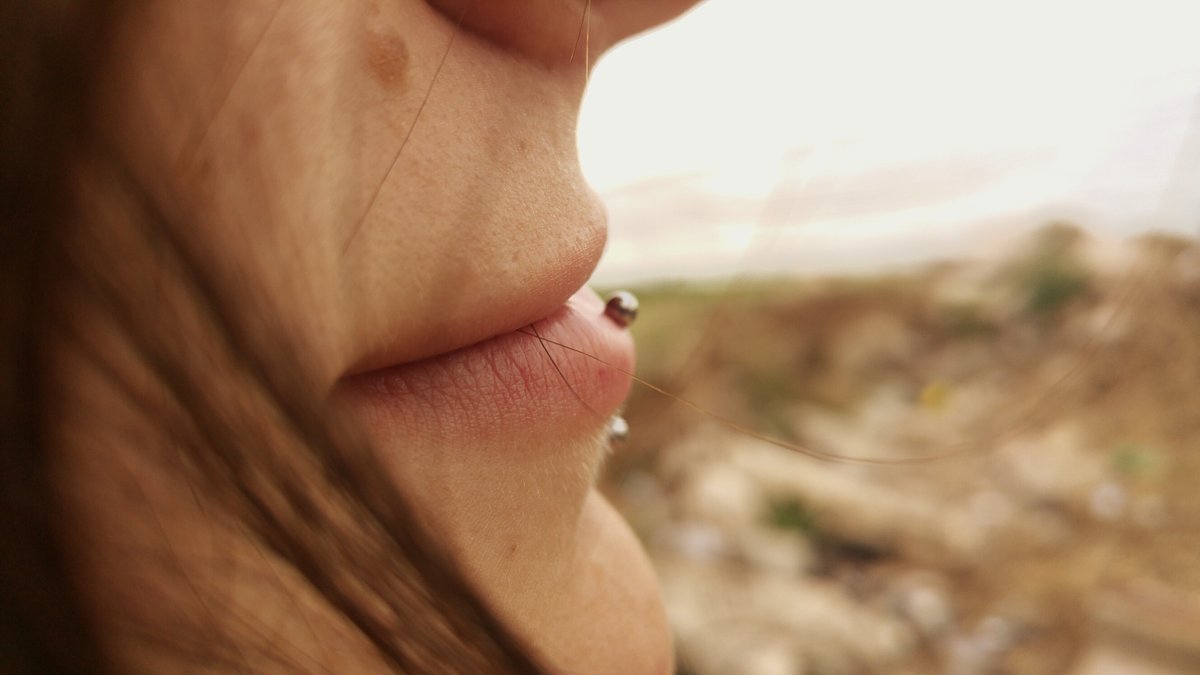Kim Kardashian’s influence over her fans is apparent, so it was only a matter of time for her followers to pick up on her latest choice in accessorizing: a lip ring.

And while Kardashian has admitted on Snapchat that her lip ring was a fake, it hasn’t stopped her younger fans from wanting to emulate their favourite celebrity – just ask her four-year-old niece Penelope Disick.
READ MORE: Caution urged when getting cosmetic tattoos
Kardashian, who has been scaling back her social media presence, has been spotted with a faux lip ring on several occasions since the end of last year after she was robbed in Paris in October.
On Tuesday, Disick’s mom (and eldest Kardashian sister) Kourtney Kardashian posted a photo of her lying in bed with her daughter, who is seen sporting a ring on her bottom lip, just like her aunt.
“Our Oscar Sunday,” the photo’s caption reads. “Yes, that’s a lip ring. Thanks @kimkardashian.”
InStyle reports, however, that Disick’s lip ring is also faux.
According to Kids Help Phone, kids in Canada do not usually need their parents’ permission to get their earlobes pierced. However, when it comes to ear cartilage, other body piercings and tattoos, they’ll likely need consent. The laws surrounding what age people can get tattoos and piercings are set by local municipalities and differ from city to city.
What you need to know about body piercings
Young or old, getting a real lip piercing can pose some risks – especially if the procedure isn’t executed properly or the piercing isn’t cared for correctly.
In fact, body piercings may come with a nine per cent infection rate, a 2011 University of California study suggests.
“Whenever you have a piercing, you’re basically causing injury to the body,” says dermatologist Dr. Lisa Kellett of DLK Cosmetic Dermatology and Laser Clinic in Toronto.
“There’s a risk of infection, a risk of scarring and obviously a risk of bleeding.”
Body piercings can also lead to nerve-tissue damage, hepatitis B, hepatitis C, tetanus and HIV should a piercing not be properly cared for, Fraser Health notes.
In addition, local infections can cause illness, loss of sensation and deformity and it’s recommended that people with skin disorders, infections or bleeding disorders should not be pierced.
However, one 2012 study in the American Journal of Clinical Dermatology says major complications are rare. The severity of any piercing complication can vary and depends on the piercing site, materials used, experience of the practitioner, hygiene regimens and after-care.
Why lip piercings come with specific health risks
Lip piercings in particular, though, pose a particular risk because of the proximity of the piercing to the body’s lymph nodes, Kellet says.
READ MORE: Doctors warn teens of dangers from trying Kylie Jenner Lip Challenge
“You have to be careful because you’re looking at an area near the head and neck and that includes the brain,” she says. “So when you pierce an area like the mouth, those areas drain to the back of the brain, so you have to make sure you’re using sterile techniques.”
Kellett adds that there is also a possibility of developing sepsis, an infection to the blood that can be fatal.
The best way to keep infections at bay, Kellett says, is to make sure all tools used in the piercing procedure are sterile and the skin is properly prepped, as well as regular and frequent cleaning of the area following the procedure.
For lip piercings, Kellett says all instruments should be cleaned with Chlorhexidine, a disinfectant and antiseptic that kills more bacteria than other cleaning agents like alcohol.
For upkeep of the area following the procedure, those with new piercings should use a topical antibiotic ointment.
Kellett advises that should there be any signs of infection or swollen lymph nodes, a physician should be seen right away.




Comments